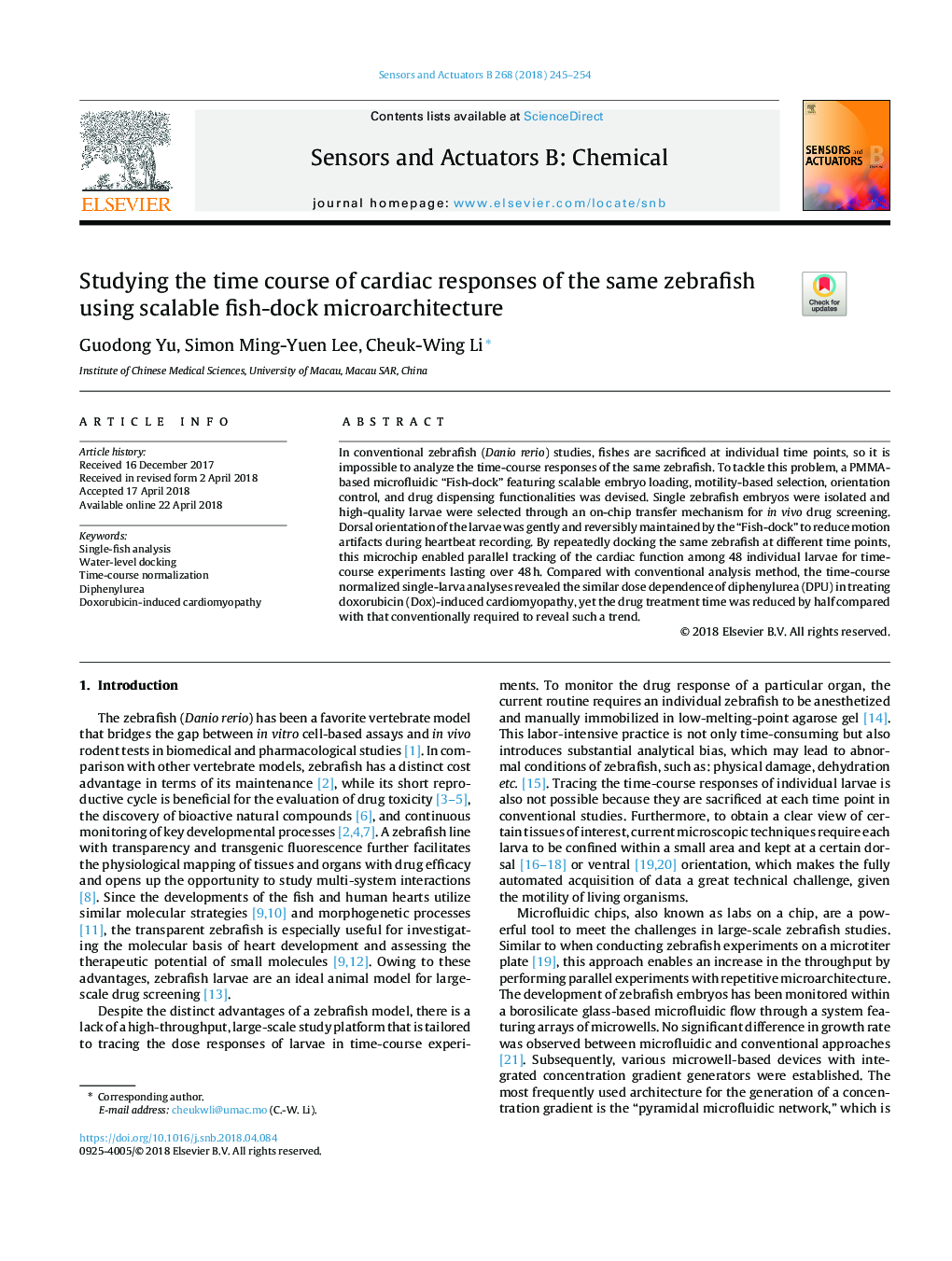| Article ID | Journal | Published Year | Pages | File Type |
|---|---|---|---|---|
| 7139390 | Sensors and Actuators B: Chemical | 2018 | 10 Pages |
Abstract
In conventional zebrafish (Danio rerio) studies, fishes are sacrificed at individual time points, so it is impossible to analyze the time-course responses of the same zebrafish. To tackle this problem, a PMMA-based microfluidic “Fish-dock” featuring scalable embryo loading, motility-based selection, orientation control, and drug dispensing functionalities was devised. Single zebrafish embryos were isolated and high-quality larvae were selected through an on-chip transfer mechanism for in vivo drug screening. Dorsal orientation of the larvae was gently and reversibly maintained by the “Fish-dock” to reduce motion artifacts during heartbeat recording. By repeatedly docking the same zebrafish at different time points, this microchip enabled parallel tracking of the cardiac function among 48 individual larvae for time-course experiments lasting over 48â¯h. Compared with conventional analysis method, the time-course normalized single-larva analyses revealed the similar dose dependence of diphenylurea (DPU) in treating doxorubicin (Dox)-induced cardiomyopathy, yet the drug treatment time was reduced by half compared with that conventionally required to reveal such a trend.
Related Topics
Physical Sciences and Engineering
Chemistry
Analytical Chemistry
Authors
Guodong Yu, Simon Ming-Yuen Lee, Cheuk-Wing Li,
